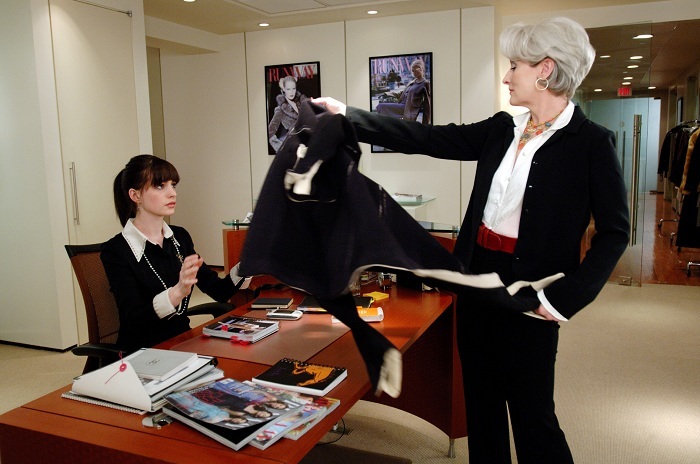Say “Stop!” To the Negative: Become an Anti-Critic
- Transfer

It’s sad, but true: the world is filled with critics who consider themselves entitled to humiliate others based on their ideas, actions and even personal convictions. It seems that the negative has already become commonplace, because it prevails among TV experts, in the columns of editors and in anonymous Internet comments. Politicians criticize their opponents instead of finding solutions in the course of teamwork; bloggers and so-called experts condemn our parenting practices, often giving conflicting advice; bosses are unhappy with your performance and ideas, and the list is endless. Instead of joining the majority and automatically condemning everyone whose ideas do not match yours, become an anti-critic. How to do it?
It is not surprising that all this negativity affects us, even if we are driven by the very best intentions.
It is important to take a step back and try to interrupt this cycle, because it is simply unproductive. Instead of joining the majority and automatically condemning everyone whose ideas do not match yours, become an anti-critic. An anti-critic is someone who collaborates, rather than constantly inventing the reasons why others are wrong. He works with others to constantly improve ideas and methods, and not just refute them point by point.
The first step is to change your own perception of the word “criticism”.
Understanding the difference between “criticism” and “verbal attack”
The word “criticism” usually has a negative connotation and equates to “attack”. For example, when a colleague criticizes your proposals related to the project, it’s easier to go on the defensive than try to improve ideas to solve the problem, because it’s easy to take criticism for reproach.
But the truth is this: in reality, criticism is not a negative. To “criticize” (in the most general sense of the word) is simply “to be examined closely”. Therefore, an important step towards becoming an anti-critic is the change in the shade of the term “criticism” within one's mind.
When thinking about “criticism”, try to put this word on a par with “analysis” and “assessment”. Reviewing your own definition will help you become more open to constructive criticism, and this is a serious step towards becoming an excellent partner. The next time, when someone from the team begins to point out errors in your ideas or work, try pushing the negative aside and find some useful advice based on criticism. If you manage to do this and react by proposing constructive ideas, you will make a huge leap to breaking the cycle of unconstructive criticism in your organization.
How to criticize
Continuing the conversation about the working situation described above, we will change our position and look at criticism from the point of view of the opponent. If you are the one who gives a negative assessment to the ideas of a colleague, it's time to think about how you present your comments and whether they are constructive. To take this step, you also need to revise your definition of criticism and move on to perceiving yourself not as a critic, but as an evaluator.
To do this, always start with a positive. Take a look at the essence of a human idea, determine which of these will work - and say so. Then move on to what could be improved. It is appropriate to mention the weaknesses and potential problems that you anticipate if you are ready to offer options for resolving them. Criticism without a solution is useless and only generates an eternal non-constructive negative and a sense of resentment. Always focus on improvements - creating ideas, not rebutting them.
This does not mean that you should be biased when evaluating an idea. Your honesty for the sake of the project should be directed to cooperation, and not to condemnation.
From criticism to collaboration
An anti-critic is, moreover, also an assistant. He does not sit aside, throwing stones, but goes to the very center of the situation and finds out how to work together to find a solution that exceeds the existing one.
Criticism (assessment or analysis) is important, but it must be constructive and leading to unification and cooperation. A good approach that makes it effective is to ask for the right to express an opinion.
If you usually just automatically get into a conversation, voicing your judgment, try to get rid of this habit. True collaboration means being open to the feelings and ideas of others. They may not want to listen to you or may not need your rating right now. Or it may seem to them that you are taking control of everything when you automatically offer your opinion. The key to cooperation is the absence of the “main ones”. You simply represent a lot of people with knowledge and experience in various fields that you need to share in order to come up with a discussion and analysis to find a solution that fixes the problem and moves the project in the right direction.
There are a lot of critics in the world, and you should not contribute to this negative. Each member of the team can and should do so that the working atmosphere promotes constant forward movement, and not immersion in unproductive moments. Modeling in a team situations that explain what it means to be an anti-critic will lead to an increase in the level of cooperation and a decrease in the number of grievances and conflicts. Take time to seriously listen to others in the process of interaction, and be sure to accompany the criticism with ideas on how to move forward.
PS. We recommend another article on the topic - 5 simple steps to improve communication efficiency .
The author of the translation is Vyacheslav Davidenko, founder of MBA Consult .
